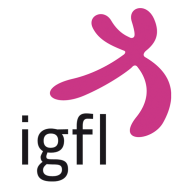General information
Title of the project: 3D chromatin organization in the highly scrambled genome of the zooplankton Oikopleura dioica
Chromatin organization within the eukaryotic nucleus plays a crucial role in the control of gene expression. This organization is apparent at different levels, ranging from the spatial positioning of genes within the nucleus to the formation of Topologically Associating Domains and transcription factories. Decades of research, primarily focused on cell lines and classical model organisms, have shed light on the basic principles governing chromosome higher-order architecture. However, the evolutionary conservation of these basic principles, especially outside the vertebrate subphylum and in species with unconventional genome structures, remains largely unexplored.
To address this gap, our team explores 3D genome organization and its function in transcriptional regulation in the plankton Oikopleura dioica, a species that offers a unique perspective on chromatin biology. Oikopleura dioica is a marine filter-feeder found in oceans worldwide. One of the most striking features of O. dioica lies in its genome structure : (1) The genome of O. dioica has undergone extreme compaction, making it the smallest genome among non-parasitic animals with a size of ~65Mb across 3 chromosomes. (2) its genome is also characterized by an unprecedented level of genome scrambling both between these populations and compared to closely related species, with thousands of rearrangements affecting gene order. This extreme genome scrambling and compaction might have led Oikopleura to evolve unique ways of organizing chromatin in its nucleus. Our team leverages these unique features to unravel how radical deviations from a standard genome structure impact chromatin organization and, as a consequence, transcriptional regulation and cellular function.
For this purpose, we are combining state-of-the-art techniques in genomics and imaging, including single-cell sequencing and spatial transcriptomic to establish how genome scrambling impacts chromatin organization and transcriptional regulation.
Different specific projects can be envisioned depending on the student's personal interest, ranging from purely experimental to purely computation or a mix of both.
This project will be performed in collaboration with the teams or Cristian Canestro in Barcelona and Nick Luscombe in Okinawa.
Period and duration of the internship are flexible.


